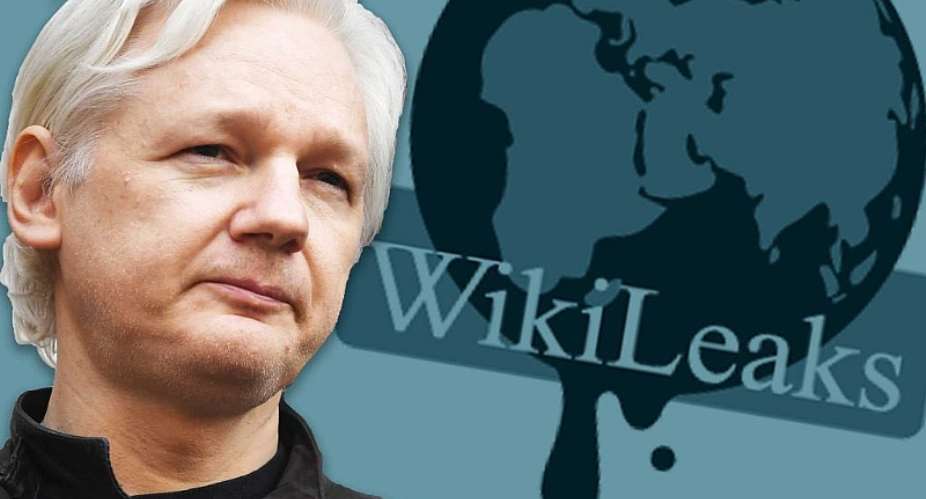In a landmark development that has sent ripples through the journalistic community and reignited fervent debates about media freedom and free speech, Julian Assange, the embattled founder of WikiLeaks, was released from a UK prison days ago. His release comes after a plea bargain with the US Justice Department, ending a tumultuous 15-year ordeal that began when WikiLeaks published a trove of US classified documents. Assange’s release marks a pivotal moment in the ongoing struggle for press freedom and raises critical questions about the future of journalism in an increasingly surveilled world.
A Symbol of Resistance and Controversy
Julian Assange has long been a polarizing figure. To some, he is a heroic whistleblower who exposed the hidden machinations of powerful governments, bringing to light instances of corruption, war crimes, and human rights abuses. To others, he is a reckless provocateur who endangered lives by indiscriminately releasing sensitive information. Regardless of one’s stance on Assange, his prolonged imprisonment and eventual release underscore the profound tension between national security and the public’s right to know.
Journalism in the Age of Surveillance
Assange’s case has profound implications for journalism, particularly investigative journalism. The charges against him were seen by many as an attempt to criminalize the core activities of journalists: gathering and publishing information of public interest. His release, following a plea bargain, may signal a tentative step back from the brink, but it leaves unanswered questions about the limits of journalistic freedom in the digital age.
The digital revolution has transformed journalism, enabling the rapid dissemination of information across borders. However, it has also made journalists and their sources more vulnerable to surveillance and retaliation. Assange’s ordeal highlights the precarious position of journalists who dare to challenge powerful institutions. It serves as a stark reminder that the fight for press freedom is far from over and that journalists must remain vigilant and steadfast in their commitment to uncovering the truth.
Media Freedoms Under Threat
The release of Julian Assange should prompt a reevaluation of the laws and practices that govern media freedoms. It is crucial to establish clear protections for journalists and whistleblowers who act in the public interest. The chilling effect of Assange’s prosecution has already been felt across the journalistic community, with some reporters and editors becoming more hesitant to publish controversial stories.
Governments must balance national security concerns with the need for transparency and accountability. Oversight mechanisms should be strengthened to ensure that classified information is not used to shield misconduct or suppress dissent. In this context, Assange’s release can be seen as a call to action for policymakers to safeguard media freedoms and uphold the principles of a free and open society.
The Future of Free Speech
Beyond journalism, Assange’s release has broader implications for free speech. It highlights the ongoing battle over the boundaries of acceptable speech and the role of digital platforms in facilitating or restricting the flow of information. In an era where disinformation and censorship are pressing concerns, the principles of free speech must be vigorously defended.
Assange’s case underscores the importance of protecting dissenting voices, even when their message is uncomfortable or controversial. A healthy democracy depends on the free exchange of ideas and the ability to hold those in power accountable. As we reflect on Assange’s release, we must recommit to defending these fundamental rights and ensuring that future generations can speak truth to power without fear of retribution.
Conclusion: A Moment for Reflection and Action
Julian Assange’s release is more than just the end of a personal ordeal; it is a watershed moment for journalism, media freedom and free speech. It challenges us to rethink our approach to information, security, and accountability in a digital age. As we move forward, it is imperative to strengthen protections for journalists, uphold media freedoms, and reaffirm our commitment to free speech. The stakes are high, and the consequences of failing to act are dire. Assange’s release should not be the end of the conversation but the beginning of a renewed effort to defend the principles that underpin a free and open society.





 You're an illiterate, illogical; a sane person won't praise Bawumia's 'destructi...
You're an illiterate, illogical; a sane person won't praise Bawumia's 'destructi...
 NHIS was a brainchild of NDC, piloted during PNDC era; we've failed to market th...
NHIS was a brainchild of NDC, piloted during PNDC era; we've failed to market th...
 'Mahama has no respect for Ghanaians; I'm disappointed in him' — Development Eco...
'Mahama has no respect for Ghanaians; I'm disappointed in him' — Development Eco...
 King Oyanka petitions IGP: Greater Accra Regional Police accused of undermining ...
King Oyanka petitions IGP: Greater Accra Regional Police accused of undermining ...
 'It's backed by data' — Local gov't Minister clarifies his 'Ghana's poverty leve...
'It's backed by data' — Local gov't Minister clarifies his 'Ghana's poverty leve...
 TUC condemns manager for assaulting female employee at Nkawkaw over GHC90
TUC condemns manager for assaulting female employee at Nkawkaw over GHC90
 SSNIT Hotels Sale: We will continue to engage stakeholders — Director-General
SSNIT Hotels Sale: We will continue to engage stakeholders — Director-General
 Claims gov't secured debt restructuring agreement with IPPs misleading, deceptiv...
Claims gov't secured debt restructuring agreement with IPPs misleading, deceptiv...
 Koforidua SECTECH Staff dies in car crash at Somanya
Koforidua SECTECH Staff dies in car crash at Somanya
 NDC National Executive fume over suspension of ‘sexy’ Assin Central PC
NDC National Executive fume over suspension of ‘sexy’ Assin Central PC
